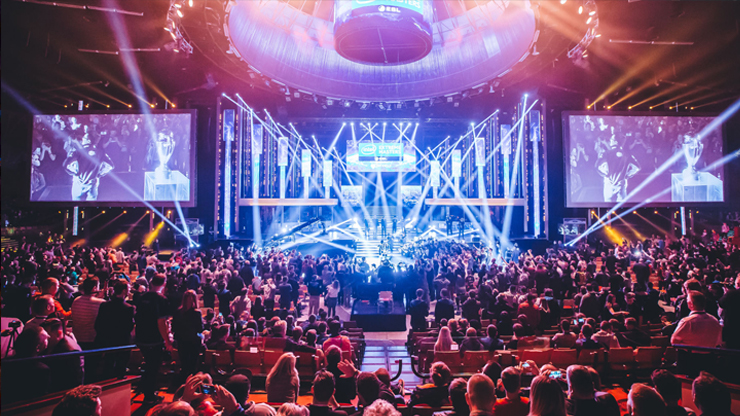ESports games, and all games really, can be broken down into two categories, reality-based and fantasy-based. And while it may have been early realistic games that helped popularize online multiplayer and set the initial stage for eSports, a new crop of fantasy games have been responsible for taking it to the heights the industry now sits at. But what are the definitions of each category and what role will they both play in the future? Let’s start at the beginning.
Reality games
A reality eSports game is any game that depicts human characters in an at least somewhat realistic setting (meaning no dragons or orcs, but rocket backpacks are okay). The most popular game in this genre right now on the competitive eSports scene would arguably be CS GO, with its simple yet effective bare bones approach in terms of gameplay (Counter Terrorist vs. Terrorist, no crazy weapons) being one of the main reasons it’s been able to maintain its fan base for so long.
In fact, if you look at nearly all FPS eSports games, the vast majority of them are based in reality, with only a few, like Overwatch, dipping into the realm of fantasy. But why is that? Would Counter-Strike really be less popular if the two opposing factions were space marines and aliens, with Mars as the setting? Actually, it would almost definitely be far less popular.
War, while it may be hell, has been a key aspect in terms of game development and popularity. Multiplayer series like Call of Duty, Battlefield and more, historically sell better than similar games with fantasy settings, like the most recent Gears of War. There have been various discussions as to why this is but the general consensus is that realistic settings are more relatable to the common gamer and thus it’s easier to get into a competitive mode when you could imagine yourself in war torn cities or abandoned shopping malls. It’s familiar, while a space depot in the middle of the solar system is not.
Fantasy games
A fantasy eSports game is a title that employs heavy sci-fi or unrealistic themes or settings. A great example of this in eSports would be League of Legends, which is the undisputed king of competitive gaming currently. In fact of the five most popular eSports games, only one would be considered a reality-based game (CS GO), while the other four (League of Legends, DOTA 2, Hearthstone, StarCraft II) are not even remotely based in reality whatsoever.
Why can only CS GO crack the top five? For one, the top fantasy games, while not relatable, are very spectator friendly, with the common viewpoint being a top-down perspective (like being seen from overhead). The action is clear, it’s easy to follow and it’s all very team oriented. Realistic games like Call of Duty and CS GO, while still team based, can only follow the vantage point of a single player at a time, with broadcasters often switching quickly between players, providing an watching experience that doesn’t flow as well as LoL or DOTA 2.
However, watchability is a big factor, while I feel setting plays less of a role. No one really knew that LoL or Hearthstone were going to explode in popularity like they did. This will likely leave the door open for a new generation of realistic game to come forward and challenge the existing champions for screen time and audience base. In fact, it’s inevitable, as even the best video games will eventually run out of shelf life, unlike mainstream sports like baseball, basketball, etc. that basically never change with the exception of rules.
Who has the edge?
Knowing the upcoming release schedule for the next year or so, it seems unlikely that fantasy games will be unseated anytime soon, but rather than be copied by a competing developer or having a sequel produced, I believe that in order to keep things fresh, new approaches will be necessary. In addition, there’s also eSports betting to factor in, as casinos prepare to place odds on eSports matches in the future. Are gamblers more opt to want to bet on realistic games than fantasy games? Since the average age of a gambler is older than the typical gamer, it would stand to reason they wouldn’t quite grasp the fantasy aspect of some games. For a full breakdown on the future of betting in eSports, visit our friends at Planet 7 Casino. Overall, while fantasy reigns in the industry currently, don’t be surprised if a new batch of realistic games grabs a new foothold in the eSports community in the next five to six years.





